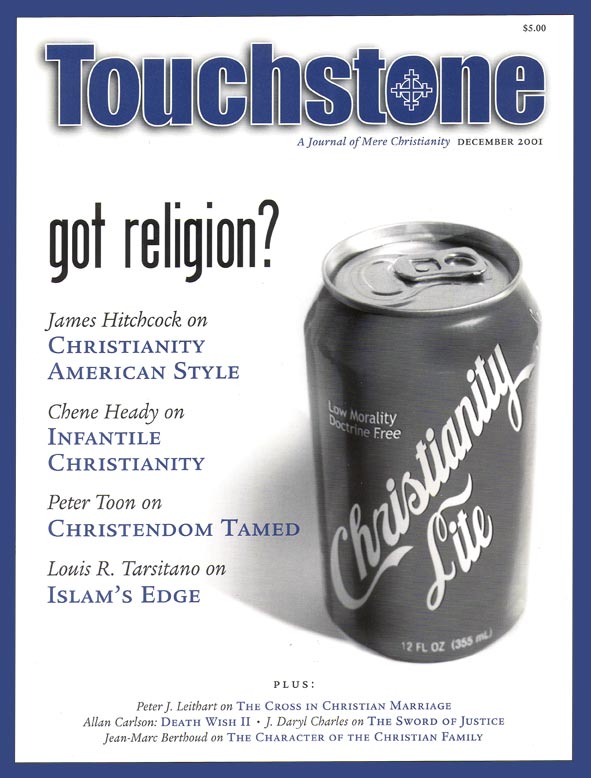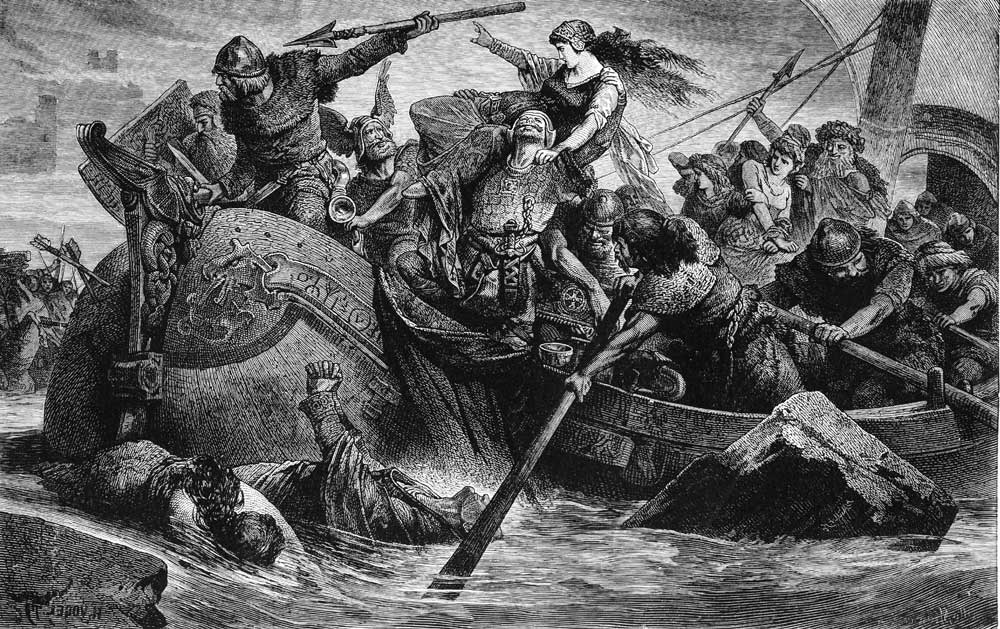The Cardinal Virtue of Fortitude
And he said unto me, “It is done. I am Alpha and Omega, the beginning and the end. I will give unto him that is athirst of the fountain of the water of life freely. He that overcometh shall inherit all things; and I will be his God, and he shall be my son.”
—Revelation 21:6–7
We live in a culture that embraces perpetual adolescence. Expressions of manliness in the traditional sense are seen as often as chest hair on a male model. Hence, it should be no surprise that the very idea of being virtuous is met with derision. After all, the word virtue comes from the Latin word vir, meaning “man.” Hence, virtuousness is meant to be equated with manliness in that a man who is fully mature in a moral sense is virtuous.
Significantly, the cardinal virtue of Fortitude is historically symbolized not by the figure of a man, but by that of a woman. The ancient Greeks personified fortitude as a woman wearing a helmet and carrying a sword and shield. They often showed her accompanied by a lion, the traditional symbol of strength.
Of course, neither of these words (virtue and fortitude) maintains these sexual differences today and, in a sense, perhaps they never did. Women have always been recognized as capable of being virtuous (as exemplified by Fortitude herself) and men, one hopes, are capable of possessing fortitude.
The Oxford English Dictionary defines fortitude as “moral strength or courage” and as “unyielding courage in the endurance of pain or adversity.” The Fathers of the Church sometimes exchanged the word fortitude with courage when listing the four cardinal virtues.
This combination of moral strength and courage and endurance is what makes this virtue so important. Fortitude goes beyond having the strength and courage to take up one’s cross. It is taking up one’s cross daily. It contains within it a requirement of endurance.
Winston “never-give-up” Churchill once gave an address at a boy’s school with the words: “Never, never, in nothing great or small, large or petty, never give in except to convictions of honour and good sense. Never yield to force; never yield to the apparently overwhelming might of the enemy.” Churchill is perhaps the twentieth century’s poster-child for fortitude, and rightly so, for in this virtue he excelled (at least in the secular sense). He once said, “Success is never final. Failure is never fatal. It is courage that counts.”
To us Christians, this courage that counts is the courage to overcome all things, as the Apostle John recorded in the last chapter of the Bible. It is the absence of timidity and weakness. It is the sweating of blood at Gethsemane. It is not yielding to sin and desires of the flesh. It is the perseverance of the saints. It is the opposite of “just do it” and “looking out for number one.” It is the blood of the martyrs. It is the virtue of fortitude.
Fortitude is an important part of the Christian response to temptation. As John Cassian wrote in the fifth century, “For the fortitude of any good man would not, as we said, be worthy of praise, if his victory was gained without his being tempted, as most certainly there is no room for victory where there is no struggle and conflict” (Conferences, 18:13). To the extent that there are conflict and struggle in our lives, we need to pray for fortitude. To the extent that there is no conflict or struggle, we need to pray to become Christian.
Thomas S. Buchanan is the George W. Laird Professor of Mechanical Engineering and Biomedical Engineering at the University of Delaware. He has studied at UCSD, Northwestern University, and MIT, and has held visiting professorships at the University of Western Australia and the University of Aix-Marseille. He has served as department chairman, deputy dean, and institute director, president of the American Society of Biomechanics, and editor-in-chief of the Journal of Applied Biomechanics. He is on the Board of Trustees of Saint Katherine College, the editorial board of Touchstone, and the board of The Fellowship of St. James.
subscription options
Order
Print/Online Subscription

Get six issues (one year) of Touchstone PLUS full online access including pdf downloads for only $39.95. That's only $3.34 per month!
Order
Online Only
Subscription

Get a one-year full-access subscription to the Touchstone online archives for only $19.95. That's only $1.66 per month!
bulk subscriptions
Order Touchstone subscriptions in bulk and save $10 per sub! Each subscription includes 6 issues of Touchstone plus full online access to touchstonemag.com—including archives, videos, and pdf downloads of recent issues for only $29.95 each! Great for churches or study groups.
Transactions will be processed on a secure server.
more from the online archives
calling all readers
Please Donate
"There are magazines worth reading but few worth saving . . . Touchstone is just such a magazine."
—Alice von Hildebrand
"Here we do not concede one square millimeter of territory to falsehood, folly, contemporary sentimentality, or fashion. We speak the truth, and let God be our judge. . . . Touchstone is the one committedly Christian conservative journal."
—Anthony Esolen, Touchstone senior editor









